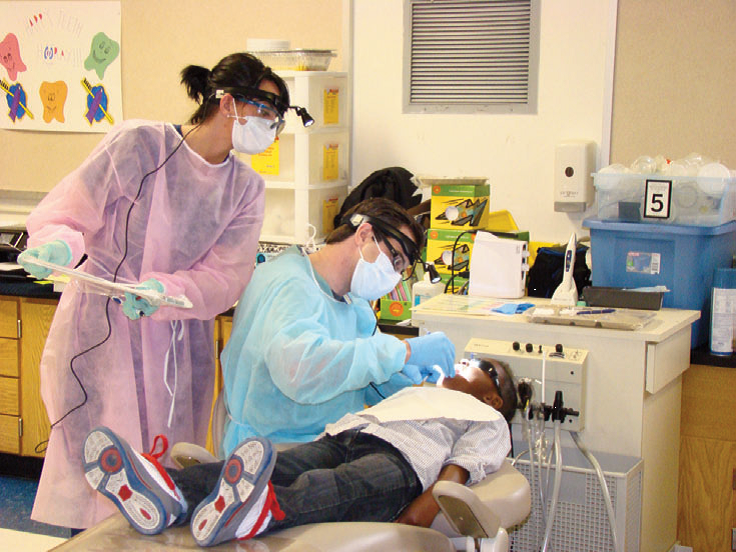by James T. Brett
Recently, I met a young man with Down syndrome who is in a public school just outside Boston. He spends most of his days in regular classroom settings and receives some extra help through an adult classroom aide. His junior high school experience was a reminder of how much better things are for those with intellectual and developmental disabilities, specifically more educational opportunities and better access to jobs, all leading to better, more fulfilling lives.
Despite certain advancements, however, one area where we have not progressed is dental care. It might seem like a small problem, but it truly affects the quality of life for this vulnerable population.
A report by the American Academy of Developmental Medicine and Dentistry notes that people with intellectual disabilities regularly face an uphill battle in finding clinicians properly trained to treat them. As a result, people with such disabilities are more likely to have poor oral hygiene, periodontal disease and untreated cavities than members of the general population.
A recently released brief by the National Council on Disability found “often times providers are concerned about the length of time it might take to treat just one person with” intellectual and development disabilities. A single dental visit for a person with intellectual disabilities can be as much as three times longer than other visits for the same procedures.
There are many solutions laid out in the Council’s study, but several stand out.
- First, a change in dental school accreditation requirements so that dentists are trained to demonstrate a sensitivity to the needs of such patients, including respectful terminology, knowledge of the patient’s living arrangements and how that might impact compliance with instructions and communications.
- States that have limited Medicaid coverage of adult dental benefits should provide more extensive coverage, including “a per person annual expenditure cap of at least $1,000.”
- Congress should expand the “Public Health Services Act to authorize additional grants to public and nonprofit dental care providers.”
- The Student to Service Loan Repayment Program of the National Health Service Corps should be expanded to give more loan relief for dentists trained in the treatment of people with intellectual and developmental disabilities.
- The American Dental Association should revise its Principles of Ethics and Code of Professional Conduct to better reflect the rights of people with disabilities.
These recommendations would not only alleviate the pain and suffering for this underserved community, but help keep down the long-term added health costs that come from dental issues that are left untreated.
I think back to that young man I met, who already faces health challenges that many other young people don’t face, such as hearing loss and poor eyesight. I also know that just as we have improved educational and employment opportunities for those with intellectual and development disabilities, we can also make it easier for dentists to treat their patients of all needs. It will help us all.
James T. Brett, president and CEO of the New England Council, is a member of the National Council on Disability and the chairman of the Governor’s Commission on Intellectual Disability.
Author: James T. Brett, President and CEO, The New England Council
98 North Washington Street, Suite 201, Boston, MA 02114
Phone: 617-723-4009
http://www.bostonherald.com/opinion/op_ed/2018/03/as_you_were_sayinghelp_dentists_aid_all_patients

